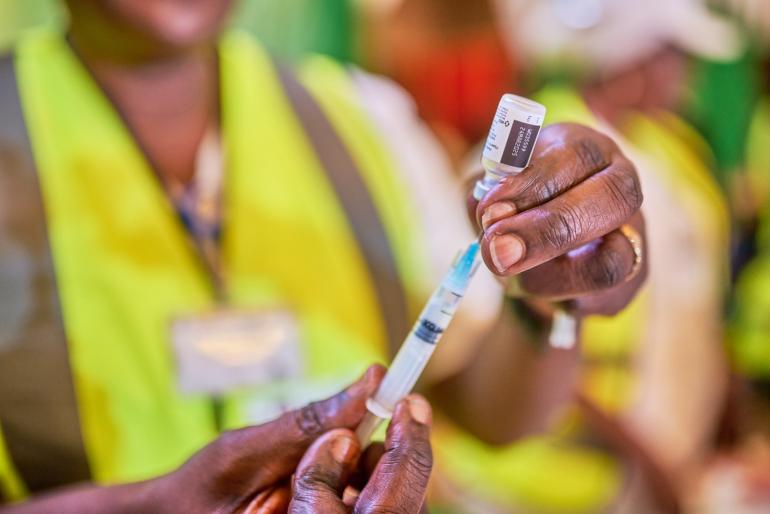In a bid to combat the virus that is responsible for almost all cases of cervical cancer, Nigeria has introduced the Human Papillomavirus (HPV) vaccine into its regular immunization programme with a target population of 7.7 million girls.
Girls aged 9-14 years will receive a single dose of the vaccine, which is highly efficacious in preventing infection with HPV types 16 and 18 that are known to cause at least 70 per cent of cervical cancers, a statement by the Communication Officer of the United Nations Children’s Fund (UNICEF), Anike Alli-Hakeem, made available to Persecondnews disclosed.
Persecondnews reports that In Nigeria, cervical cancer is the third most common cancer and the second most frequent cause of cancer deaths among women aged between 15 and 44 years.
The statement said: “A five-day mass vaccination campaign in schools and communities will be carried out during the inaugural rollout in 16 states and the Federal Capital Territory. The vaccine will then be incorporated in routine immunization schedules with in health facilities. The second phase of the vaccination introduction is set to start in May 2024 in 21 states.
“The vaccine is being provided for free by the Federal Ministry of Health through the National Primary Health Care Development Agency (NPHCDA)with support from Gavi, the Vaccine Alliance, United Nations Children’s Fund (UNICEF), World Health Organization (WHO) and other partners.
“With support from WHO country office in Nigeria and other partners, over 35 000 health workers have so far been trained in preparation for the campaign and subsequent vaccine delivery in all health facilities. Vaccination sites have been established in all 4163 wards across the 16 states included in the phase one rollout to ensure no eligible girl is left behind.
“Mobile vaccination units have also been set up to ensure that remote communities can access the vaccine.”
UNICEF Representative in Nigeria, Cristian Munduate, was quoted to have said: “UNICEF has procured nearly 15 million HPV vaccines on behalf of the Government of Nigeria. Alongside this, the children’s agency has produced informational materials, including radio and TV jingles in multiple local languages to dispel misinformation and rumours.
“To further the outreach, UNICEF also supported academia and researches with two rounds of readiness assessments to understand the population’s sentiments on HPV and the vaccine. Additionally, UNICEF has facilitated logistical support for vaccination campaigns and distributed cold chain equipment for vaccine preservation.
“In our shared quest for a brighter future, the introduction of the HPV vaccine in Nigeria represents a monumental stride towards safeguarding our girls from the grips of cervical cancer. This vaccine doesn’t just prevent a disease; it promises a life where our young women can thrive, unburdened by the spectre of this grave health concern.
“UNICEF, in collaboration with the government and other partners, is proud to be a key partner in this initiative, ensuring that every eligible girl, irrespective of her location or circumstances, has access to this life-saving intervention. Together, we are scripting a narrative of hope, resilience, and a healthier Nigeria.”























Leave a comment